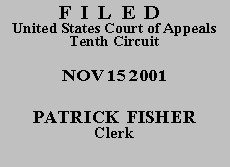

| UNITED STATES OF AMERICA,
Plaintiff-Appellee, v. BREAVESS MCBRIDE, Defendant-Appellant. |
|
Breavess McBride was convicted after a jury trial of five counts of sexual abuse in violation of 18 U.S.C. § 2242(1), five counts of abusive sexual contact in violation of id. § 2244(a)(2), and one count of sexual abuse of an inmate in violation of id. § 2243(b). Each of the aforementioned crimes includes as an element that the act of sexual abuse or contact occurred "in the special maritime and territorial jurisdiction of the United States or in a Federal prison." McBride appeals his convictions, contending that this element, which he argues is "jurisdictional," was not satisfied.
The evidence showed, and McBride does not dispute, that he was a correctional counselor at the Federal Transfer Center in Oklahoma City and that the incidents forming the basis of the charges occurred there. The jury was properly instructed, with regard to each crime, that the government had to prove that the defendant's actions took place in a federal prison. The jury was further instructed, with regard to each crime, that "the parties agree that the Federal Transfer Center in Oklahoma City, Oklahoma is a federal prison in the Western District of Oklahoma," R., Vol. I, doc. 36, instr. 10, 14, 18, and that it therefore need not concern itself with that element. McBride does not challenge the voluntary and knowing nature of this stipulation.
On appeal, McBride's sole contention is that the Federal Transfer Center is not a "federal prison" within the meaning of the statutes under which he was convicted. His previous concession of this element poses obvious problems for his argument. See, e.g., United States v. Wittgenstein, 163 F.3d 1164, 1169 (10th Cir. 1998) (stating right to jury trial concerning every element of offense, including right to proper instruction as to that element, is waived when defendant stipulates that the element has been satisfied). McBride argues, however, that the requirement that the offenses occurred in a federal prison is "jurisdictional" and that he may therefore raise it as a basis for appeal even though he previously conceded it in the district court. See generally United States v. Burch, 169 F.3d 666, 668 (10th Cir. 1999) ("Challenges to a district court's subject matter jurisdiction may be raised at any time.").
McBride misconceives the "jurisdictional" nature of this element. A federal court's jurisdictional power to adjudicate federal criminal cases comes from 18 U.S.C. § 3231, not from the individual criminal statute under which a defendant is convicted. Hugi v. United States, 164 F.3d 378, 380 (7th Cir. 1999). The individual elements of a crime are not "jurisdictional" in the sense that they affect a court's subject matter jurisdiction. United States v. Prentiss, 256 F.3d 971, 982 (10th Cir. 2001). For this reason, a defendant may concede essential elements, including those that make a crime "federal," without running afoul of jurisdictional principles. See Hugi, 164 F.3d at 380-81. Under general principles noted above, such a concession waives an appellate challenge to the existence of the element whose existence has been stipulated.
Through his stipulation, McBride has waived any appellate challenge to sufficiency of the evidence, correctness of the jury instruction, or federal "jurisdiction" to prosecute him arising from the issue of whether the Federal Transfer Center in Oklahoma City is a "federal prison." The judgment of the United States District Court for the Western District of Oklahoma is therefore AFFIRMED.
Entered for the Court
Circuit Judge
*. This order and judgment is not binding precedent, except under the doctrines of law of the case, res judicata, and collateral estoppel. The court generally disfavors the citation of orders and judgments; nevertheless, an order and judgment may be cited under the terms and conditions of 10th Cir. R. 36.3.